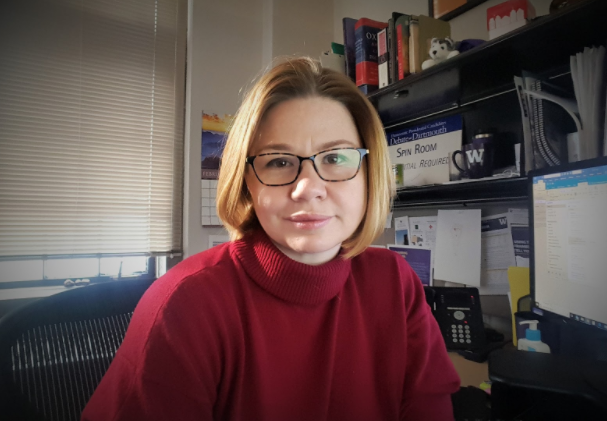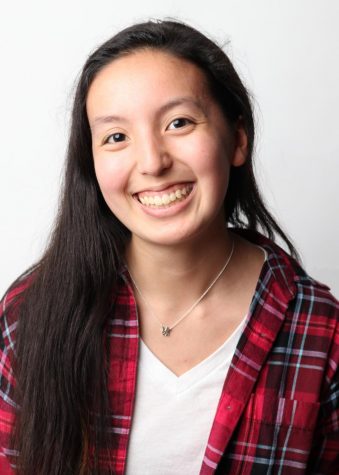When you really love something, you can keep doing it your whole life.
That is how things panned out for alumna Genevieve Haas (class of 1996). She was a Blue & Gold editor back in the day, and has managed to make writing her full-time job.
Haas began her love affair with the written word in her English classes at Chamblee — she especially enjoyed AP English with Dr. Lynn Farmer and her editor duties at the Blue & Gold.
“[Writing op-eds for the paper] was good practice at finding a clear and compelling voice through persuasive writing, which is a big part of my job now,” said Haas. “At Chamblee, I devoted a lot of time and energy to learning to write well, [and] that love of writing has stayed with me and been invaluable to my career trajectory. “
Haas got her bachelor’s degree at Wellesley College, a small women’s college in Massachusetts where the focus, she says “is on creating spaces where women can learn and become leaders.”
“I sometimes describe Wellesley as a very fancy, very rigorous summer camp,” said Haas. “Because it’s all women and in a sleepy little Boston suburb, it [feels] like a place for real scholarly contemplation.”
She then began working at Northeastern University in Boston and, as a perk, was able to simultaneously complete a master’s degree for free.
Both of her degrees taught her invaluable skills that had their roots in her high school education.
“I was an English major in undergrad and got my master’s in history, both of which taught me to conduct research, think critically, develop a point of view and articulate it clearly and even entertainingly. I got a taste of those things, and discovered that I enjoyed them, at Chamblee,” said Haas.
To Haas, the most striking difference between high school and college was the degree of freedom.
“College in general is just so different from high school,” said Haas. “In high school, a lot of choices – like what you study, where you have to be during the day, who you see every day – are made for you, or at least that’s how it felt to me. College felt like an enormous amount of freedom.”
After college, Haas packed up her writing skills and went to work.
“I’ve been in professional communications work for most of my career – a mix of technology and higher education marketing and communications,” said Haas, “although my first job out of college was as a reporter for Lawyers Weekly, a trade publication for trial lawyers.”
She is now the Director of Executive Communications for the President of the University of Washington (UW) — a mouthful of a title, but a perfect fit for her.
“I’m responsible for all the communications that come directly from the UW’s president, Ana Mari Cauce. […] In my current position, which is an absolute dream job for me, I work with the president to produce all of her speeches and public remarks, her blog posts, op-eds and messages to large audiences, like students, faculty and alumni,” said Haas.
Haas loves the act of writing, but she also believes in what she writes.
“I’m honestly passionate about what the UW does for the world and the state of Washington,” said Haas. “I also believe deeply in what President Cauce stands for, [both] personally and as the leader of Washington’s flagship university.”
From high school, to college, to working at a university, Haas has spent most of her life in a place of education, and she makes it a goal to never stop learning.
“I remember so vividly how well I thought I knew myself when I was 17 or 18, and I was totally convinced that my beliefs and opinions were unshakable… What I discovered in college and every day since is that I am changing and learning more all the time, and the assumptions I make today may be – probably will be – totally wrong looking back ten years from now,” said Haas.
She has been able to live in several different places, travel, and interact with a variety of people, which she credits with expanding her worldview and ultimately making her a better person.
“I think the biggest assumption that I made as a high school student, without even realizing that it was an assumption, was that my experience was universal,” said Haas. “Realizing that my experience is not everyone’s – that it’s a factor of being white and middle class and the child of college-educated parents to name just a few – has been an incredible gift, because it’s made me kinder, more empathetic and more willing to stop and ask if I might be wrong about something.”








